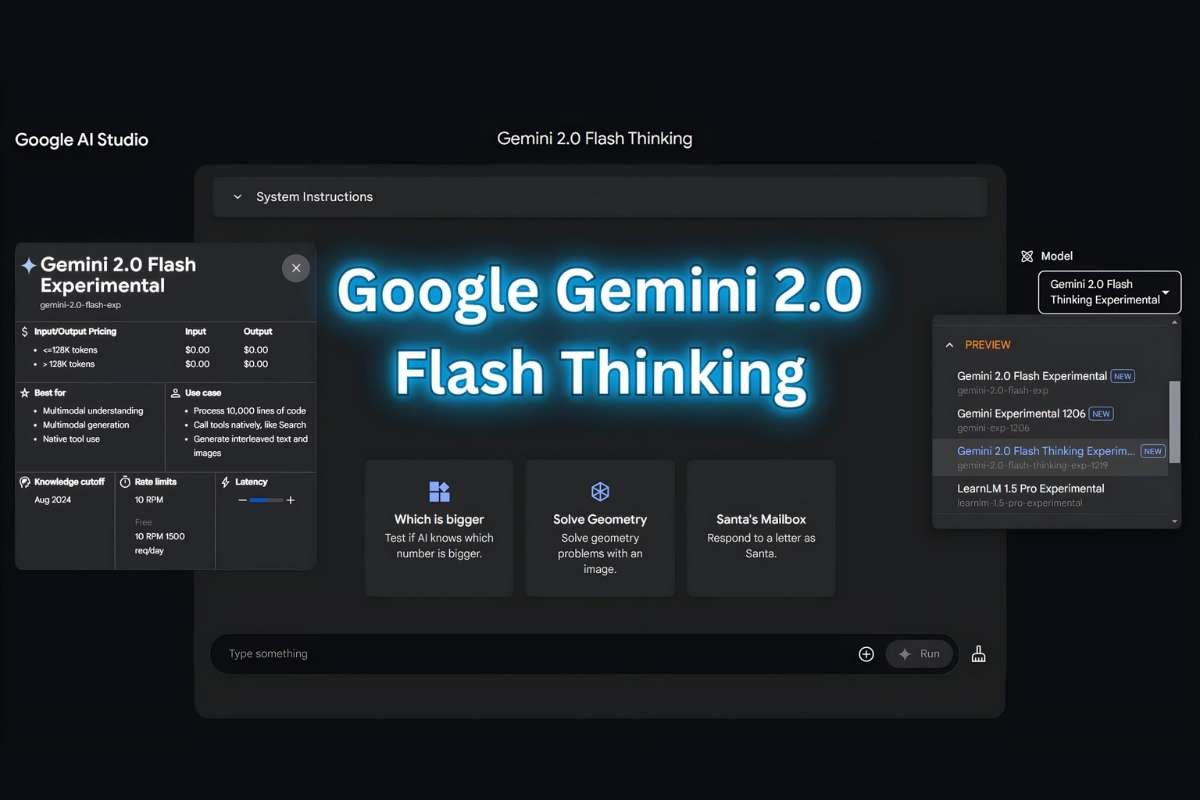Google Introduces Advanced “Reasoning” AI
In a bid to match and potentially surpass OpenAI’s advancements, Google has unveiled Gemini 2.0 Flash Thinking Experimental, a reasoning-based AI model designed to enhance problem-solving capabilities. Released on Thursday, the model builds upon Google’s Gemini 2.0 Flash and operates on its AI Studio platform. The move underscores Google’s ambition to solidify its position in the rapidly evolving AI landscape.
Reasoning AI models like Gemini 2.0 are distinct from traditional AI systems. They incorporate self-checking feedback loops to evaluate and refine answers, a technique that gained attention in early 2023 with projects like “Baby AGI.” These methods involve additional computational steps, extending response times but potentially improving the depth and accuracy of problem-solving. According to Jeff Dean, Google DeepMind’s chief scientist, the model benefits from increased computational power during inference, allowing it to consider multiple prompts before delivering a response.
Competition in the AI Reasoning Arena Intensifies
Google’s release of Gemini 2.0 follows OpenAI’s entry into reasoning-based AI with its o1-preview and o1-mini models earlier this year. The competitive landscape has since heated up, with companies like DeepSeek launching DeepSeek-R1 and Alibaba’s Qwen team debuting QwQ. Each aims to leverage reasoning capabilities to tackle complex academic and mathematical challenges.
Despite the excitement, early testing of Gemini 2.0 has revealed some limitations. TechCrunch reporter Kyle Wiggers highlighted accuracy issues in basic tasks, such as miscounting the number of “R”s in the word “strawberry.” These setbacks point to the experimental nature of reasoning models and the challenges companies face in refining their functionality.
Balancing Costs and Practicality
While reasoning models offer potential breakthroughs in AI thinking, their practicality remains a topic of debate. High computational requirements lead to increased operating costs, raising concerns about long-term viability. For instance, OpenAI’s ChatGPT Pro, which utilizes similar technology, comes with a hefty $200 monthly subscription fee.
Still, Google appears committed to exploring the possibilities of reasoning AI. Logan Kilpatrick, a team member at Google’s AI Studio, described Gemini 2.0 Flash Thinking Experimental as “the first step in our reasoning journey.” Despite lingering questions about accuracy and cost-efficiency, the company’s efforts signal a strong push toward shaping the future of artificial intelligence.
As the AI reasoning race continues, tech giants like Google and OpenAI are setting the stage for a transformative era in problem-solving technology.








